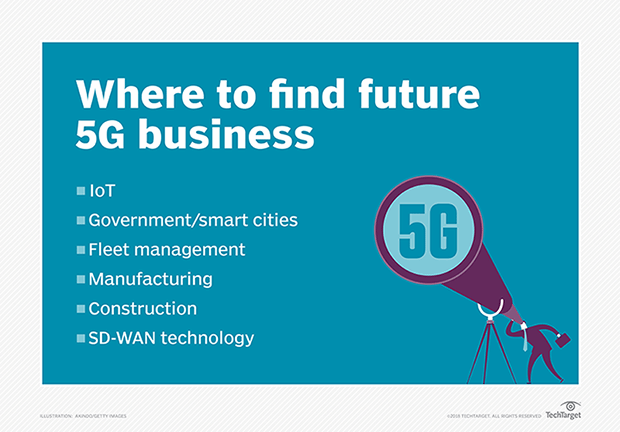Will 5G networks require new network engineer skills?
The 5G network will likely affect network engineer skills in areas such as security, physical appliances and software. But enterprise teams won't see too much change, for now.
The move toward the upcoming fifth-generation standard began with 3G cellular networks that relied on IP, which was also the basis for most corporate networks. Then, 4G networks incorporated more capabilities, including handling cellular voice traffic over IP. As IP became the default for both networks, it became clear that network engineers for both carriers and customers would start sharing many common networking skills.
Now, the 5G transition is happening. By 2020 or 2021, most carriers will have commercially operational 5G, and by 2024, it will likely be the predominant carrier technology.
Network engineers in enterprise data centers may not see an extensive change in their required skills, because 5G is primarily a carrier technology. However, 5G networks may create new opportunities for cloud-based and mobile applications, so enterprise support may change over time.
Where will network engineer skills see the most change?
Security will be an important network engineer skills area for enterprise teams. The combination of enterprise networks, cloud services and 5G may create overlaps and gaps in network security that engineers must manage closely.
Carrier network engineers are already seeing change and complexity as 5G deployments alter how their companies build and provision communication services. Therefore, 5G networks will demand different, more fine-grained programmability to handle both the volume and variety of services that organizations plan to run on top of this cellular infrastructure.

A focus on software and microservices will be crucial to deliver on the promise of 5G, and they should be integral in any 5G service. It will no longer be acceptable for network engineers to program every device through a command-line interface (CLI). The complexity will require software-defined programmability, orchestration and automation.
The following areas will be critical for network engineer skills:
- Software-defined networking, for routing and switching.
- Software-defined radio access networks, for the radio connection to mobile handsets and devices.
- Network functions virtualization, for virtualizing physical network applications and functions such as gateways, firewalls or load balancing.
- Automation and orchestration, for handling changes quickly and efficiently based on conditions or loads.
The old way of configuration through CLI at the device level is rapidly dissipating, as we move to a more virtualized world where programmable devices and automation will drive much of what happens in networking.







